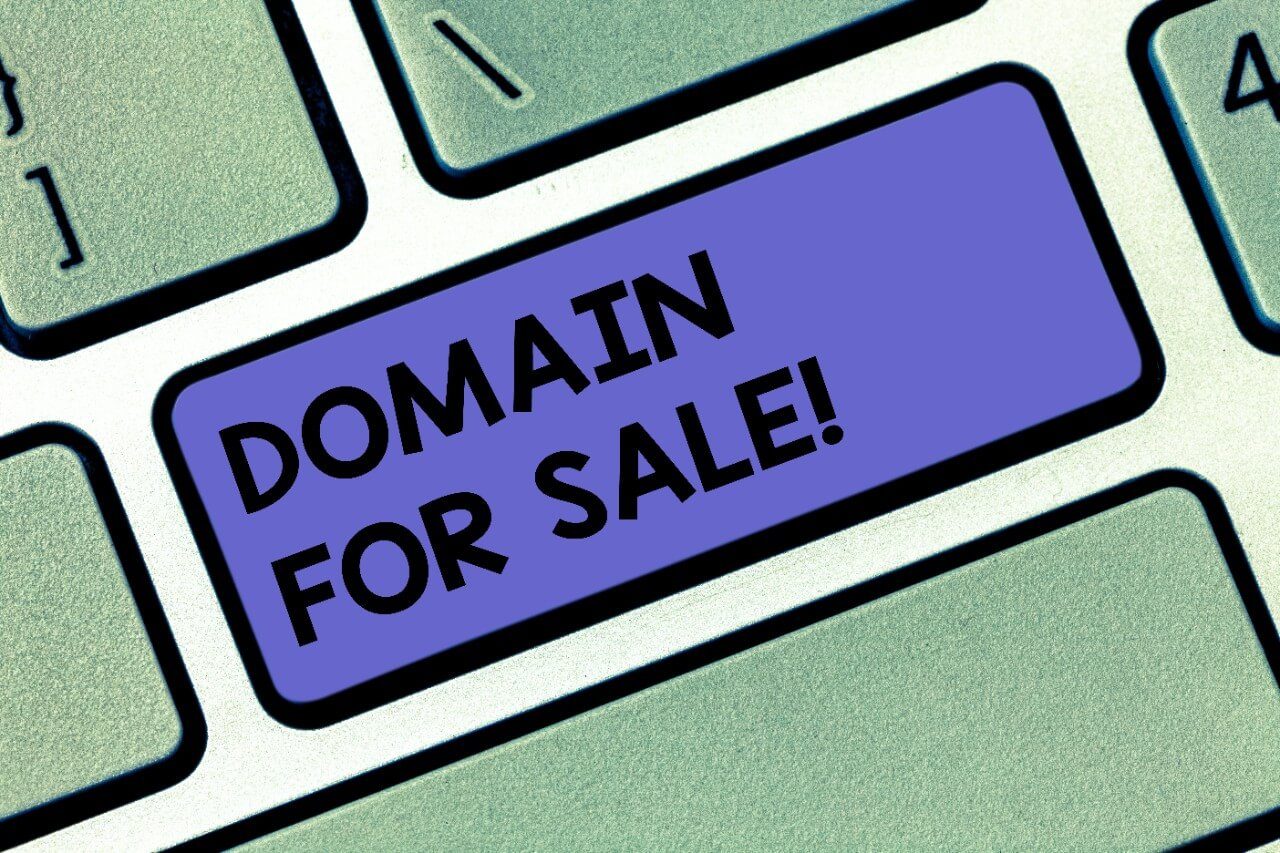Key Takeaways
- When done strategically, buying and selling domains can generate substantial income as a side business or even a full-scale enterprise.
- Understanding what makes a domain valuable involves identifying profitable web properties and understanding the domain types that are best for flipping.
- Optimizing a website with helpful content, attracting regular visitors, and generating income opportunities can boost the domain’s value
Domain names are in-demand digital assets in today’s internet-driven world. With the aftermarket domain name industry projected to reach $1.17 billion by 2033, buy-and-sell domain businesses have become lucrative opportunities for entrepreneurs and investors, especially for enhancing credibility and SEO.
Want to learn how to buy and sell (flip) domains (and other domain terms)? Understanding the basics of domain investing can help you tap into this lucrative digital market and turn a simple web address into serious profit.
Find the perfect domain
Ready to register a domain name? Check domain availability and get started with Network Solutions today.
What is buying and selling domain names
Buying and selling domain names involves purchasing valuable web addresses and reselling them through platforms such as domain marketplaces, auction websites, and listing services. When done strategically, it can generate substantial income as a side business or even a full-scale enterprise.
When buying and selling domain names, you have two options:
- Expired domains: These are previously registered domains whose original owners didn’t renew. You can acquire them at a lower cost and flip expired domains for a profit.
- New domains: These are unregistered domain names. While basic new registrations are typically the cheapest entry point, acquiring a premium new domain with high potential can be more costly upfront, yet often offers greater long-term value.
What are the advantages of buying and selling domains
The buy-and-sell domain market has emerged as one of the most beginner-friendly digital investment opportunities available today. Here are some common ways how domain trading can boost your income:
- Low start-up costs: Compared to many other businesses, you can start domain flipping with a small investment. A single domain name can cost as little as $10 to $15 to register.
- No technical skills required: While research and marketing skills are beneficial, you don’t need advanced technical knowledge or coding expertise to start. Basic internet literacy is enough.
- High demand for domains: Domain names are necessary for entities seeking to build an online presence. This drives the market for both new and existing domains.
What are the risks of domain flipping
Even with its benefits, buying and selling domains involves specific challenges and potential risks:
- Difficulty in selling: There’s no guarantee that a domain you purchase will sell, and some may sit unsold for long periods, tying up your capital.
- Value subjectivity: The perceived value of a domain can be subjective. What one buyer sees as a goldmine, another might see as worthless, making pricing and sales unpredictable.
- Trademark issues: Buying domains that infringe on trademarks can put you at risk and incur costs. Do your research to avoid trademark infringement. Domain registrars provide trademark protection services to help reinforce your brand reputation.
- Non-guaranteed profitability: Not every flip is profitable. You might sell a domain for less than you paid or incur renewal fees if you don’t sell it.
What are the legal and ethical aspects of domain buying and selling
Given the risks, it’s best to exercise caution and adhere to legal and ethical practices when buying and selling domains. Here are some points worth remembering:
- Respect trademarks: Registering or selling a domain name that infringes on an existing trademark results in legal consequences. To avoid this, thoroughly search the United States Patent and Trademark Office’s (USPTO) database.
- Avoid cybersquatting: Registering domain names that are similar to existing trademarks with the intent to profit from them. This is illegal and unethical, as it involves bad-faith registration of domain names to exploit their goodwill.
- Adhere to ICANN policies: Familiarize yourself with the policies of the Internet Corporation for Assigned Names and Numbers (ICANN) to ensure compliance when buying and selling domain names.
- Check domain blocklists: Identify lists of domain names flagged for malicious activity, such as spam, phishing, or malware distribution. MxToolbox can check whether your domain is on a blacklist.
What makes a domain name valuable
Understanding what makes a domain valuable involves identifying profitable web properties and the domain types best suited for flipping. Consider key factors when evaluating a domain name’s potential for profitable resale.
- Shorter domain name
- Age
- Natural keyword integration
- Domain extensions
- Relevance
- Existing traffic
- Sales history
Shorter domain name
Shorter and niche-specific domains hold more value since they’re more memorable and easier to type. This makes them brandable assets that carry market appeal. Also, avoid hyphens and numbers, as they can complicate recall. For example, a concise domain like shoes.com commands significantly more value than a longer alternative such as buy-shoesonline24.com.
Age
Older domains could perform better in SEO because search engines have built trust in them over time, likely due to accumulated backlinks and history. Such established authority, evident in their history and backlink profiles, makes them valuable for domain investors. Older domains offer buyers an SEO head start, providing faster indexing and established authority, which saves time and costs.
Natural keyword integration
Domain names don’t directly impact search engine rankings, but the right keywords are important for brand perception and searchability. Keyword-rich domains aid SEO by giving visitors a sense of what your brand is about, especially when it aligns with your products or services.
Domain extensions
Top level domains (TLDs) or those with .com, .net, or .org extensions are valuable due to consumer trust and recognition. This makes .com particularly lucrative for domain flippers, given its unparalleled recognition and higher market demand, whereas .net and .org, while still valuable, typically command lower resale prices. For example, shoes.com would be worth much more than shoes.net or shoes.org.
Don’t overlook newer extensions like .co, .io, or .ai since they can be valuable if they fit the right market, particularly for tech companies, startups, or AI-related businesses.
Relevance
Relevant, niche-specific domains align with your interests and enhance value by attracting your target audience. For instance, ‘runningshoes.com’ is priced higher than ‘sportsgear.com’ if you’re catering to running enthusiasts, since it establishes authority and relevance to what you are selling.
Existing traffic
A domain that already has keyword rankings, a link portfolio, and established SEO authority has big advantages. These reduce buyer risk and give quicker returns than building from scratch. It’s like buying a working, revenue-producing (or revenue-ready) digital asset.
Sales history
Comparing similar domain transactions helps determine appropriate valuations and assess buyer appetite. It identifies which attributes (including keywords, extensions, or branding potential) drive the highest demand. This supports stronger bargaining positions in both acquisition and sales scenarios.
What tools can be used for research quality domain names
Identifying valuable domain names for buying, selling, or building a solid web presence requires specialized research tools. These platforms help evaluate a domain’s investment potential, search engine performance, and marketplace appeal.
- NameBio: Reviews historical domain transaction records, allowing you to see past domain sales and assess market trends.
- Google Trends: Identifies trending search terms, growing industries, and popular keywords, helping you find profitable domain opportunities.
- Domain valuation services (e.g., Sedo Domain Appraisal): Provides estimated domain values based on multiple factors. While helpful, remember these are estimates and should be used in conjunction with other research methods.
- WHOIS database: Verifies domain ownership details, registration history, and expiration dates.
- Dropped domain finder tools: Offer platforms for finding recently expired or soon-to-expire domains.
- SEO analysis tools (e.g., Ahrefs, Moz, SEMrush): Analyzes link profiles, estimates traffic, and performs keyword analysis.
Where to purchase domains for buying and selling
Domains can be purchased through multiple channels and platforms, each offering different advantages and opportunities:
| Category | Description | Examples |
|---|---|---|
| Domain registrars | The primary market for registering new, unregistered domain names. | GoDaddy, Namecheap, NameSilo, Network Solutions |
| Domain auctions | Platforms where expired, dropped, or premium domains are sold. | GoDaddy Auctions, Sedo, Flippa, Namejet |
| Expired domain marketplaces | Specialized platforms that list domains that have recently expired and become available for re-registration or purchase. | GoDaddy Auctions, Namejet, Sedo, Dynadot |
How to purchase domains for buying and selling
Successfully entering the buy-and-sell domain market begins with understanding how to strategically acquire valuable web properties for your investment portfolio. Let’s explore options for securing domains that can generate substantial returns on your investment.
- Check expired domains
- Participate in auctions
- Contact brokers
Check expired domains
Expired domains are registered domains whose owners have failed to renew. Opting for one is ideal, since rather than starting from scratch, you can leverage its existing SEO value, including domain history, authority, and backlink profile. An expired domain can make it easier to boost a website’s search engine rankings, increasing profitability prior to sale.
Participate in auctions
Several entities offer auction domains, including GoDaddy Auctions, Flippa, and Namecheap. Each platform requires creating an account, verifying your identity, and providing a secure payment method.
When bidding, many experts advise waiting until the last minute before bidding for a domain. This way, other bidders will be less likely to outbid you, even if they are willing to pay more. However, many domain auction entities discourage this method (commonly called bid sniping) to ensure fairness throughout the bidding process.
Some domain auction approaches extend the auction timer whenever a bid is placed close to the deadline. Considering this factor, it’s actually better to bid early and diversify your maximum bid amount. This way, it’s less likely to tie with another bidder.
Contact brokers
For premium domains not publicly listed, private acquisition is required, as these valuable domains are in use or held as investments and not listed on marketplaces.
Two ways: direct owner contact (via WHOIS, domain registrar, website information) or hiring domain brokers.
- Direct owners: While direct contact eliminates broker fees, it often results in unresponsive owners, privacy barriers, or poor negotiation outcomes.
- Professional brokers: Brokerage services provide the most reliable path to successful transactions, thanks to services such as expert evaluation and transaction security.
How do you increase the value of a domain?
Owning a domain isn’t enough; strategic actions are necessary to boost its value and maximize your return on investment. Below are the steps to make it more appealing to potential buyers.
- Hold on for market appreciation
- Optimize for search engines
- Ensure availability
Hold on for market appreciation
If you’re not in a hurry to sell your domains, hold on to them and wait for their value to appreciate.
Domain values tend to fluctuate based on industry trends, market conditions, and technological advancements. By holding on to quality domains, you can capitalize on industry growth and emerging market opportunities.
For instance, the price of domains associated with artificial intelligence (AI) and machine learning may increase as they become more mainstream. Waiting for optimal market conditions may lead to better results than instant flipping.
Optimize for search engines
Optimizing a website with helpful content, attracting regular visitors, and generating income opportunities can boost the domain’s value. This approach includes:
- Keyword research: Perform keyword analysis for the domain’s specific market via Google Keyword Planner, Ahrefs, and SEMrush.
- Content optimization: Develop informative, relevant content that appears in search engine results pages and engages users.
- Speed enhancement: Optimize loading times to improve user experience (UX) and search engine performance.
- Backlinking: Acquire authoritative backlinks from trusted websites to enhance the domain’s SEO authority.
Ensure availability
Securing domains and making them available through parking is an important yet underestimated element of the buy-and-sell-domains business. It prevents lost value while you strategize and offers monetization opportunities by displaying domains to fixed-price investors. This expands profit potential and creates passive income streams.
How do you sell a domain for maximum value
Achieving maximum value when selling your domain hinges on skillful negotiation, often requiring strategic discussions to find common ground. Here are tips for more successful sales:
- Set realistic expectations: Base your domain’s asking price on comprehensive market analysis and comparable sales, not personal attachment or speculation.
- Highlight the domain’s strengths: Show buyers its value by listing key points such as keyword relevance, age, extension, brand potential, traffic, and backlink authority.
- Build rapport with buyer: Maintain professional, patient, and transparent communication with potential buyers. Since domain sales are investments, buyers need time for evaluation.
Frequently asked questions
A domain name is valuable when it is easy to remember, relevant to a clear market, and in demand.
Short domain names usually hold more value because they are easier to brand and recall. Domains that reflect a product, service, or industry can also attract buyers since they communicate purpose and commercial intent.
Age and history also influence value. Older domains with a clean track record, existing backlinks, or past organic visibility may offer SEO advantages. The extension also matters. While .com domains remain the most sought-after, certain niche or industry-aligned extensions can hold strong value when demand is high.
To buy a domain name, start by checking its availability through a domain registrar or marketplace.
If the domain is available, you can register it by selecting the extension, choosing a registration period, and completing the purchase with your contact information. Ownership is typically activated immediately after checkout.
If the domain is already owned, you may need to purchase it through a domain marketplace or negotiate directly with the current owner. In these cases, reviewing the domain’s history, prior use, and trademark risk is essential before finalizing the purchase.
To sell a domain name, list it on a domain marketplace or approach buyers who could benefit from owning it.
Sellers typically choose between setting a fixed price or allowing offers based on demand. Domains with strong branding potential, relevant keywords, or popular extensions are generally easier to sell.
Before listing, assess the domain’s value by considering its length, extension, market relevance, and existing SEO signals. Clear pricing, accurate ownership details, and a secure transfer process help build buyer confidence and support faster sales.
Refer to these guides for transferring your domain to Network Solutions from Namecheap, from Squarespace or from Wix.
The best domain extensions for flipping are those with consistent demand and clear market alignment.
Country-specific extensions often perform well for businesses targeting local audiences. Technology-focused extensions are popular among startups and digital-first companies seeking brandable names.
Newer extensions can also be profitable when paired with strong, exact-match keywords, though their resale value is usually more niche-driven and less predictable than established extensions.
Get started with your domain investing journey
Learning to buy and sell domain names effectively and efficiently takes time. With the right attitude and cutting-edge tools, you can simplify the whole process. In line with this, if you have the luxury of starting from scratch, seriously consider using a domain generator.
Domain generators revolutionize the process of finding new and creative domain name ideas. Powered by AI, it provides you with a wide range of creative domain name ideas based on your input. This tool helps you save time and find a memorable name you might have thought of on your own. At Network Solutions, we can help you get started with the perfect domain.




